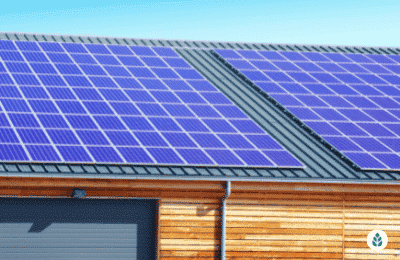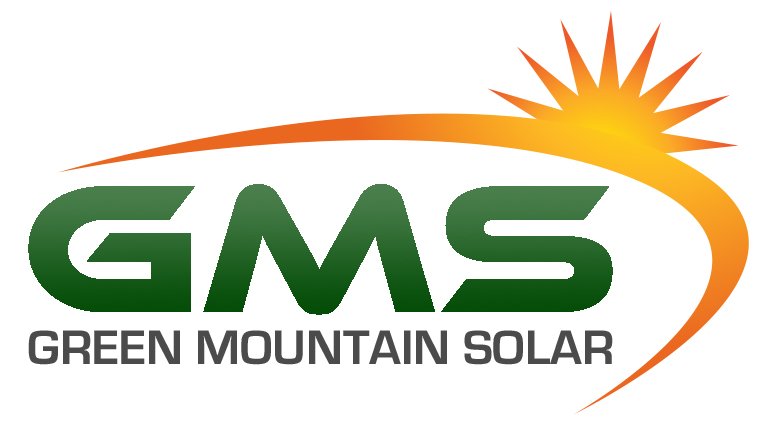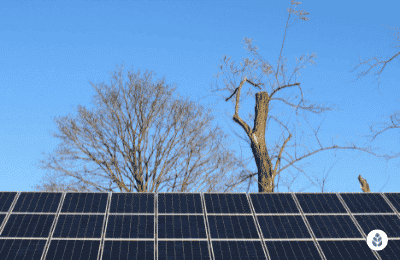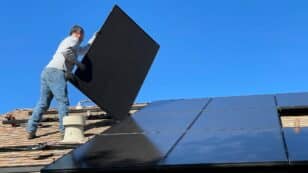
Top 5 Best Solar Companies in Vermont (2024 Reviews)
In this guide to choosing a reliable solar provider in Vermont, you’ll learn:
- What are the best solar panel installation companies that service Vermont?
- Are there ways to save money when choosing a solar installer in Vermont?
- Is it a good idea to install your own solar panel system in Vermont?
Each product and or company featured here has been independently selected by the writer. You can learn more about our review methodology here. If you make a purchase using the links included, we may earn commission.
What Are Vermont’s Top 5 Solar Energy Companies?
The Solar Energy Industries Association (SEIA) notes that there are 39 solar installation companies that are based in Vermont, plus national and regional installers that service the state. That means you’ll have your work cut out for you if you want to choose the one that’s best suited for your particular solar project and fits into your budget.
We’ve done most of the research for you to save you some time and effort. Below is a list of what we believe are the best solar system installers you should consider in Vermont:
- SunCommon: Outstanding Social Impact
- SunPower: Best National Provider
- Green Mountain Solar: Outstanding Local Installer
- PlugPV: Outstanding Workmanship
- Catamount Solar: Outstanding Local Installer
You can get more information about each of these companies by clicking on the drop-down menus below.

SunCommon

Regional Service
Average cost
Pros
- Certified B Corp
- Offers products from leading manufacturers
- Many years of experience
Cons
- No leases or PPAs
- Expensive
SunCommon is our top pick not only for the high-efficiency equipment it provides but also for the impact it has on the solar industry and the environment overall.
Vermonters see just 167 sunny days per year, on average, which is well below the national average of 205 sunny days.1 Having a high panel efficiency is necessary for maximizing the value of your system and your energy savings in the long run in such low-light conditions.
SunCommon carries some of the most efficient PV panel brands on the market, including SunPower, Panasonic and Tesla. These should provide plenty of energy to persist through the low-sun conditions and save you from having to pay the well-above-average electricity rates in VT.2
Additionally, SunCommon is a B-Corp and has focused its efforts on sustainability and environmental friendliness. In a state as green as Vermont, we believe this is an important factor that most customers will want to consider.
SunCommon is a bit on the expensive side, but we believe the cost is worth the investment, especially since you’re supporting clean energy and eco-friendliness more so than you would with other providers.
Facts and Figures: SunCommon
| EcoWatch Rating |
|---|
| Better Business Bureau (BBB) Rating |
| Average Cost ($-$$$$$) |
| Solar Services |
| 4.5 |
| Not Rated |
| $$$$ |
| Solar Panels, Solar Batteries, Solar Roof Shingles, Community Solar, Solar Carports, Agricultural Solar |

Green Mountain Solar
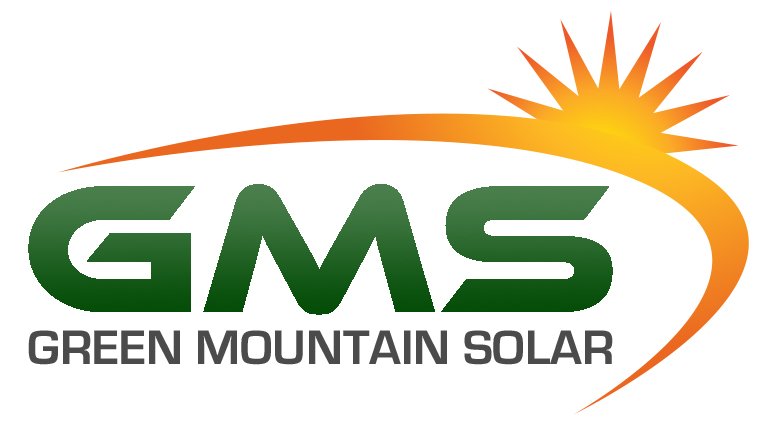
Local Service
Average cost
Pros
- Locally owned and operated
- Offers products from leading manufacturers
- Great warranty coverage
Cons
- No leases or PPAs
- Relatively young company
Green Mountain Solar is another great local option, headquartered in South Burlington, Vermont. Green Mountain was launched as an affiliate of the successful Granite State Solar based in New Hampshire and has a stellar reputation in New England, as well as a wide selection of solar energy brands and above-average warranty coverage.
There are several benefits to choosing a local provider for your solar project, including a lasting relationship long after the sale (which is helpful if there are any issues post-installation). Green Mountain will also have a stronger familiarity with local weatherization needs and solar incentives, as well as more prompt and personalized service compared to national providers.
The company also offers a 25-year efficiency warranty, the manufacturer’s warranty for the equipment and a 12-year labor warranty. The efficiency warranty is great for ensuring that your panels continue to save you money on VT’s high energy bills.
Green Mountain Solar has limited payment options available, but since we only recommend cash purchases and solar loans anyway, we still strongly suggest you consider this installer.
Facts and Figures: Green Mountain Solar
| EcoWatch Rating |
|---|
| Better Business Bureau (BBB) Rating |
| Average Cost ($-$$$$$) |
| Solar Services |
| 4.5 |
| A+ |
| $$ |
| Solar Panels, Solar Batteries, EV Chargers, Solar Heat Pumps |

PlugPV
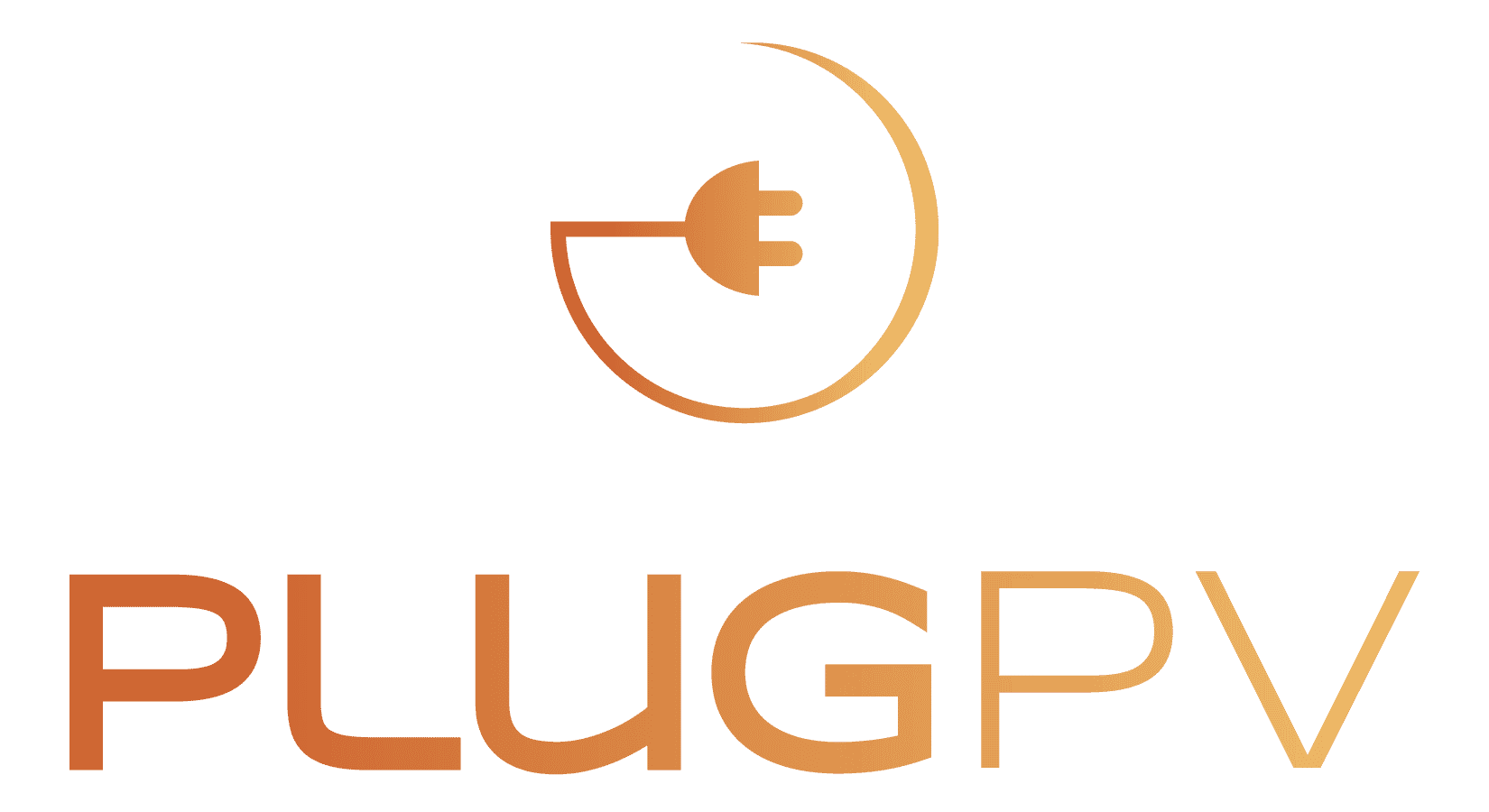
Regional Service
Average cost
Pros
- Comprehensive service offerings
- Outstanding workmanship
- Offers products from leading manufacturers
- Expansive service area
Cons
- No leases or PPAs
- Relatively young company
- Low BBB rating
PlugPV is located in Albany, New York, but it services all of Vermont and much of New England. Despite being a somewhat larger company, its technicians are still experienced with VT installations, specifically. They’re also equipped to answer questions about local incentives and help you take advantage of them to save money on your installation.
PlugPV carries a decent selection of solar brands, including top-tier options like Tesla and Qcells. These provide plenty of efficiency to help ensure your panels generate enough power to offset the high electricity costs in VT despite the low-sun conditions.
PlugPV carries good warranty coverage as well, which falls in line with the industry average in terms of equipment — 25 years of coverage — and workmanship — 10 years of coverage. The labor warranty, in our opinion, is most crucial, as it helps protect against roof leak issues that could come up due to the above-average snowfall in VT.
PlugPV has had some issues with customer service in the past, leading to a well-below-average BBB rating, but with a small sample size. However, if you’re willing to look past that, we still suggest this provider for a professional installation, high-quality panels and good warranty coverage.
Facts and Figures: PlugPV
| EcoWatch Rating |
|---|
| Better Business Bureau (BBB) Rating |
| Average Cost ($-$$$$$) |
| Solar Services |
| 4 |
| F |
| $$$ |
| Solar Panels, Solar Batteries, EV Chargers, Roofing Services, Community Solar |

Catamount Solar
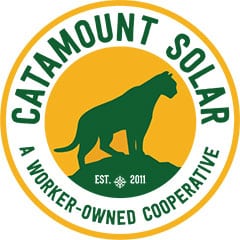
Local Service
Average cost
Pros
- Great warranty coverage
- Gives 5% of annual profit back to the community
- Locally owned and operated
Cons
- No leases or PPAs
- Limited service area
- Low BBB rating
Catamount Solar is one of our top picks in Vermont for several reasons, including the panel brands it offers, the warranty coverage it provides and the positive impact it has on the local community in VT.
First off, it carries tier-one panel brands that have efficiency ratings that are suitable for the low-sun conditions in Vermont. These include Q Cells, Tesla, Canadian Solar and REC.
The company offers the manufacturer’s warranty for the equipment — an average of 25 years — and also includes 15 years of coverage for the labor. This is above the industry average and provides the peace of mind you might want as your rooftop solar system and the roof penetrations to install it sit under the heavy Vermont snow.
Finally, Catamount Solar is committed to donating 5% of its profits to push the local solar industry forward and provide customer education for renewable energy. Choosing this provider is an outstanding way to support clean energy in VT.
The company doesn’t have the greatest reviews or BBB rating, but we believe it’s worth considering because of the many upsides it brings to the table.
Facts and Figures: Catamount Solar
| EcoWatch Rating |
|---|
| Better Business Bureau (BBB) Rating |
| Average Cost ($-$$$$$) |
| Solar Services |
| 4 |
| C+ |
| $$$ |
| Solar Panels, Solar Batteries, Solar Heat Pumps |
Watch Below: How Well Will Your Solar Panels Still Work When Covered In Snow?
How Can You Save Money When Hiring A Solar Company In Vermont
The per-watt price for solar equipment in VT is about $0.26 higher than the national average, hovering around $3.59. However, the energy needs in the state are so low that most residents only need a 6 kilowatt (kW) system to offset energy consumption. This is a significantly smaller system than what most Americans need — 9 kW on average.
As such, the all-in cost to convert to solar in Vermont is around $21,540, which is about $8,000 less than the U.S. average. Still, this is prohibitively expensive for many residents, so most will still look for ways to save money on their systems. Below are some tips we recommend exploring to save, and we’ll explain these in greater detail further down.
- Take advantage of Vermont’s solar benefit programs
- Invest in high-quality, high-efficiency panels
- Get multiple free quotes for your system
Take All the Tax Credits You Can
The easiest way to save money when converting to solar power is to take advantage of the tax credits, rebates and other incentives afforded to you in VT. This single tip alone can often save you thousands of dollars on your system. We’ll include a list of all of the perks available in Vermont in the table below, along with a brief description of each.
| Solar Benefit Program | Program Description |
| Federal Solar Investment Tax Credit (ITC) | This is a tax credit in the amount of 30% of your entire system cost, including panels, inverters and batteries. This credit averages out to $6,462 in Vermont. This credit gets applied to your income taxes owed for one to five years after you convert to solar power. |
| Renewable Energy Systems Sales Tax Exemption | The State of Vermont waives all sales tax on solar equipment to help keep upfront costs down. Given the state sales tax rate of 6% and the average system cost of $21,540, this perk saves an average of just over $1,292.3 |
| Uniform Capacity Tax and Exemption for Solar | This is a property tax exemption that keeps your taxes from going up from solar conversion, even though installing photovoltaic (PV) equipment boosts your home value. |
| Net Metering | Net metering is mandated by the Vermont Public Service Commission (PSC) for all public utilities. They each must credit excess solar production sent to the power grid using a blended rate, which is just below the retail rate per kilowatt-hour (kWh). This program helps maximize your long-term energy savings, especially since the per-kWh electricity rate in VT is so high. |
| Local Incentives | VT provides access to some rebate programs for energy-efficiency equipment. However, there are no programs available for PV conversions, specifically. |
You can get more information on these perks and learn how much they can save you by heading over to our guide to Vermont solar benefit programs.
Choose a Panel Brand With a High Efficiency Rating
Next, we recommend you choose an installer that offers highly-efficient, tier-one solar panel brands. Some brands that work well in Vermont include:
- SunPower/Maxeon
- Tesla
- REC
- Canadian Solar
- Panasonic
- Qcells
- Trina Solar
High-efficiency panels are necessary in the Green Mountain State for offsetting energy bills because sunlight is in short supply. Residents see just 167 sunny days per year, which is far fewer than the national average of 205.
High-efficiency panels make the most of the sunlight that is available and help move you closer to eliminating your above-average energy bills in VT. They’re usually more costly upfront, but can make your solar conversion project in Vermont worth the investment in most cases.
Get a Few Free Quotes for Your System
Finally, we recommend you get a free quote from a few companies to compare them based on cost and the value provided for that price. Every installer in your area will quote a different price for your solar energy system based on different equipment brands available and labor costs.
Shopping around can help you find the best value or the lowest upfront price, whichever is more important to you.
See Also: Calculate How Much You Can Save By Going Solar
Will Solar Increase Your Home Value In Vermont?
Yes! Converting to solar almost always boosts your home value. In fact, estimates from Zillow indicate that your property value will increase by an average of 4.1% when you install your PV equipment.4 In VT, where home values average around $385,968, that’s a significant increase of over $15,824.5
Vermont is a relatively eco-friendly state as a whole, but there are a few cities where solar has become especially popular. For example, Burlington has such a high solar adoption rate that it became the first city in the country to source 100% of its electricity from renewable sources.6
Other green cities where solar is more widely accepted and, therefore, valuable include:
- Rutland
- Brattleboro
- Montpelier
- Stowe
- Shelburn
Should Vermont Residents Hire a Professional Solar Installer Or DIY?
Hiring a professional solar installation company to install your PV system in VT is expensive, usually totaling around $21,540. Completing a DIY solar installation will cost far less, on average, typically hovering between $8,000 and $15,000. DIY installations seem appealing on a cost basis, but there are some significant downsides you should consider before diving in.
In VT, these include:
- DIY panels having significantly lower efficiency ratings
- DIY brands coming with less attractive warranty coverage
- DIY installations being more prone to roof leaks and other issues
We’ll discuss why these problems are so severe in Vermont and why each can cost you more than you’d save on a DIY installation in the sections below.
DIY Panels Aren’t as Efficient
The first major downside to DIYing your solar energy solution is that the panel brands available aren’t nearly as efficient. They usually have efficiencies between 15% and 18%, while professional panels average above 20% and edge close to 23%.
While these differences might seem minimal, the power output difference between the two is massive. Efficiency is especially crucial in VT, where the sunlight is in short supply, and the energy prices are well above average.
Even a slightly less efficient panel brand could mean a difference of thousands of dollars in lifetime energy savings. As such, we strongly believe paying more for a professional system will pay off over time.
DIY Panels Have Less Appealing Warranty Coverage
Second, the DIY panel brands almost always come with shorter warranties or none at all.
Professional systems usually include 25 years of coverage for the equipment, 25 years for the power production and ten years for labor. DIY brands often include just 15 years for the equipment and ten years for power production, and they don’t include a labor warranty at all.
In VT, a lengthy power production guarantee can pay for itself, even if it’s expensive, by guaranteeing your panels continue to offset the high energy rates in the area. The workmanship warranty is also helpful for ensuring your system is installed properly and isn’t subject to roof leaks under the excessive snowfall in Vermont.
Roof Leaks Are More Common When You Install Your Panels Yourself
On that note, DIYers are more likely to make errors during the installation process, which can be dangerous. Roof leaks are one of the most common problems solar customers run into, and the resulting water damage can cost you thousands of dollars, depending on the severity.
Since DIYers don’t have the same experience that professional installers do, you’re more likely to run into expensive roof leaks if you install your panels yourself. You’ll save $5,000 to $10,000 on average, but you won’t have the same peace of mind and could end up having to pay for repairs and panel replacement, which could offset those savings.
What Should Vermont Residents Look For in a Solar Installer?
Choosing a solar installer can be a time-consuming process, but there are a few things we recommend looking for in a solar panel company to ensure you get the service and equipment you need in VT. These include:
- A good PV panel selection
- Robust warranty coverage
- Local experience
We’ll explain why we believe these things are so important in VT, specifically, in the sections below.
High-Quality Panel Brands
The first thing we recommend looking for in an installer is a selection of the best solar panel brands. As mentioned above, Vermonters see well below the average number of sunny days per year, which means solar customers have to make the most out of the sun that does hit their panels.
A PV panel with a high efficiency can do just that and is most likely to offset the above-average energy prices in the area. Some brands that work well in VT include Maxeon, Tesla, REC, Qcells, Canadian Solar and Panasonic.
Robust Warranty Coverage
Next, we suggest looking for a company that offers lengthy warranty coverage. The best-case scenario is an installer that offers solar warranty coverage for the equipment, the power production and the workmanship.
While all of these are great to have, we suggest prioritizing the labor and efficiency warranties. Labor guarantees help ensure your panels are installed properly and remain at low risk of roof leaks and other problems. Efficiency guarantees help make sure your panels continue to provide sufficient power for your home, even in the low-sun conditions in Vermont.
Years of Experience in VT
Finally, we suggest prioritizing companies that have at least five years of experience working in Vermont, specifically. The demand for solar in the Green Mountain State is high, which means there are quite a few companies that have popped up in recent years to turn a profit.
Historically, new installers are more likely to go out of business and void your warranties in the process. Experienced companies are also more likely to understand your power needs as a VT resident and can often save you money by helping you navigate the local incentive programs.
The cost information presented in this article is derived from a comprehensive analysis, incorporating data from multiple industry sources. The average cost per watt per state was calculated based on figures from Consumer Affairs, Energy Sage, and Berkeley Lab’s Electricity Markets & Policy Department. Additionally, monthly energy consumption and the average monthly cost of electricity were sourced from the U.S. Energy Information Administration, ensuring a well-rounded and accurate representation of the information presented.
Methodology: How We Ranked Vermont’s Solar Companies in 2024
Our primary goal in ranking installers in Vermont is to bring you recommendations for companies that meet your specific needs as a Vermonter. To achieve that goal, we use a state-specific rating protocol that highlights the factors that we believe are most crucial in VT. Below is a quick look at how we rate companies in Vermont:
- Solar Products & Services (20%)
- Solar Warranty & Customer Support (20%)
- Environmental, Social and Corporate Governance Factors (15%)
- Qualifications, Reputation & Certifications (15%)
- Experience (10%)
- Solar Financing Options (10%)
- Availability (10%)
Additionally, our methodology is never affected by partnerships we have in the industry, so our company recommendations are truly based on what we believe is most important to you as a solar customer. Below, we’ll explain why we think the factors above are most impactful to your experience when converting to solar power.
Solar Products & Services
The first things we look for in a solar system installation company in VT are the products it carries and the services it offers.
As mentioned above, high-efficiency panels are a must-have in Vermont if you want to offset the high energy bills. We also look for companies that offer more than the basic installation services — panels and solar batteries — as these will naturally appeal to customers who might be looking for other add-ons, like energy audits, solar water heaters and more.
Solar Warranty & Customer Support
Next, we prioritize installers that have lengthy warranty coverage. Specifically, we look for labor warranties that are above-average that can help protect your property from roof leaks and other issues stemming from poor installation technique and Vermont’s snowfall and extreme weather.
A company gets an average score in this category if it has 25 years of equipment and efficiency protection and a ten-year workmanship guarantee. Longer coverages mean higher rankings.
Environmental, Social & Corporate Governance Factors
Since VT is such a green state, we next look at the environmental impact a company has. Things we look for in particular include a program for recycling old PV panels and sustainable business practices.
We also look for installers that uplift the community through charitable donations and alliances with solar and nonprofit environmental organizations in the area.
Qualifications, Reputation & Certifications
Since there are quite a few installers available in VT, we look for things that set companies apart from others. These include qualifications, certifications and evidence that the company is reputable and reliable. Some things we look for in particular include:
- NABCEP certification (North American Board of Certified Energy Practitioners)
- 100 or more 4- or 5-star customer reviews on Google
- High rating with the BBB
- Few customer complaints
- No record of customer lawsuits
- Certification from LEED (Leaders in Energy and Environmental Design)
Experience in Vermont
Given the popularity of solar in VT, new installation companies are not a rarity. While choosing a company with a lack of experience isn’t always a bad thing, it does come with a higher risk of losing your warranties if it goes out of business.
Less experienced companies are also more likely to make mistakes during your installation, which could mean roof leaks, which are already a high risk in VT due to the above-average snowfall.
Solar Financing Options
Next, we take a look at each company’s payment options. Although solar is less expensive in Vermont than in most other states, a system still averages around $21,540, which is prohibitively expensive for many residents. We prioritize companies that offer in-house, flexible solar financing and accept leases and power purchase agreements (PPAs) in addition to cash.
Availability
Finally, we look at each installer’s service area. Most of the top solar power companies in Vermont serve the entire state, but we take points away from installers that have a more focused service area. These companies will appeal to fewer Vermonters overall.
EcoWatch FAQ: Best Solar Companies in Vermont
EcoWatch is one of the most trusted names in the solar industry. As such, we receive many questions about finding the best solar companies. If you have specific questions that aren’t answered here, reach out to our team of solar experts at solar@ecowatch.com.
We’re confident that the solar companies reviewed above are all reputable companies. However, based on track record and years of experience, we would say SunCommon is the most reputable local solar company in Vermont, while SunPower is the most reputable solar installer nationwide.
We know you might be rolling your eyes at another solar review company handing out “ratings,” but that’s not who we are. The EcoWatch Solar Reviews team carefully reviewed all of the top solar companies in Vermont based on all of the criteria outlined above. We give each category a scale and then weigh all of the scores based on importance. The combined number becomes our EcoWatch Rating, a single number to help you decide at a glance which is the best solar company to meet your needs in Vermont.
It’s hard to find the most affordable solar company in Vermont without knowing the specifics of your household energy needs, as that plays a huge role in the cost of solar. We recommend getting free quotes from a few different solar companies and choosing the one that’s right for you.
Don’t forget to ask each installer what financing options and solar incentives may be available to you. Any homeowner who installs solar panels in Vermont is eligible for a federal tax credit, also called the federal solar investment tax credit (ITC). However, there may be other solar incentives for Vermont residents.
There’s no doubt that SunPower is the most experienced solar installer in Vermont, as it’s been around since 1985. However, because SunPower is a national provider based in California, your experience with SunPower in Vermont may vary depending on the expertise level of your local SunPower dealer. With SunCommon having over two decades of experience serving Vermont customers, we’d say it’s right alongside SunPower when it comes to being the most experienced.
No, we don’t think so. While SunPower is a good option for solar installations, Vermont has so many great local companies that are dedicated to making solar more accessible. Plus, there are several benefits to choosing a local installer over a national installer, including local knowledge and dedicated customer care. In the end, choosing a bigger company over a local company is a personal preference and cannot be defined as “better” or “worse.”
Vermont has beautiful summers, but the winters can be long and harsh. It’s no surprise many locals wonder, is it worth getting solar panels in Vermont? The answer is yes. While it’s true that solar energy systems produce more power on sunny, cloudless days, they tend to produce enough power year-round to provide you with energy (and significant cost savings). Solar panels are tilted so that, in most cases, snow will slide right off of them and they can still receive sunlight. Plus, electricity flows faster in colder temperatures, which means your panels may even be more efficient in the winter.
There may be cases when your solar panels will not produce power, but even with occasional solar blockages, your system will still work efficiently the majority of the time. Plus, if you add a solar battery to your home solar installation, you can store excess electricity from sunny days for later use.
Top Solar Installers in Vermont Cities
Comparing authorized solar partners
-
- Certified B Corp
- Offers products from leading manufacturers
- Many years of experience
- No leases or PPAs
- Expensive
Not RatedOutstanding Social Impact
Having trouble deciding? Click below and use our process to receive multiple quotes instead:

 233k
233k  41k
41k 
